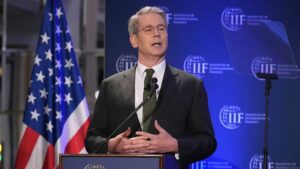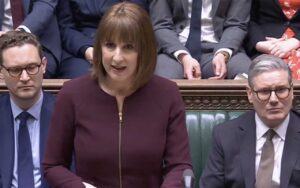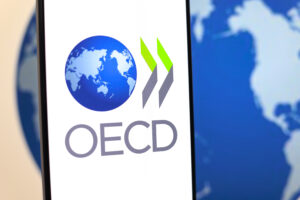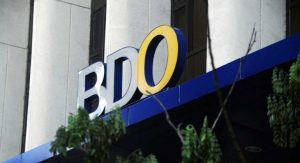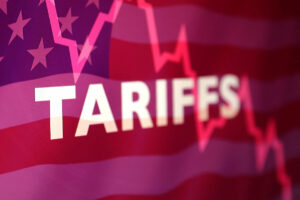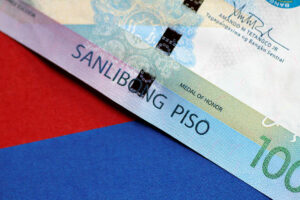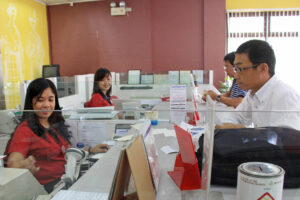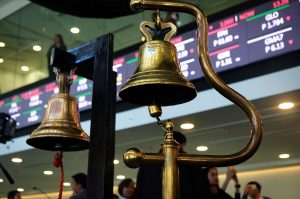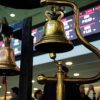THE PHILIPPINE banking system is unlikely to face significant credit risk from the United States’ tariff policies due to its lower tariff rate compared with its neighbors in the Asia-Pacific (APAC) region, Moody’s Ratings said.
“In Asia-Pacific, the impact on banks is credit-negative albeit to different levels, leading to heightened uncertainty for investors and consumers… Within APAC, the lowest additional US tariffs are now in Australia, New Zealand, Hong Kong, Singapore, Mongolia and the Philippines, with these economies’ banks experiencing the least damage from direct tariffs,” it said in its latest credit outlook, saying in a chart that the impact from the levies will be “low.”
Meanwhile, it expects banks in Vietnam, Thailand and Bangladesh to be the worst hit in the region by the US tariffs, with the impact expected to be “high,” while those in China, Indonesia, Taiwan, Japan, Korea, India and Malaysia are expected to see a “moderate” impact.
“The higher tariffs are more negative, on a relative basis, for banks in Vietnam, Thailand and Bangladesh because of their economies’ higher reliance on exports to the US compared with other economies in the region,” Moody’s Ratings said. “In these three countries, a moderation in exports to the US will hurt economic growth, straining loan growth for banks and hurting loan quality.”
“Elsewhere in APAC, despite significant increases in US import tariffs, the related impact on banks in China, Japan, Korea, India, Indonesia, Malaysia and Taiwan, China, will be more manageable because of either economic diversification, low exports to the US, or both.”
US President Donald J. Trump last week announced a slew of tariffs on the country’s trading partners that are set to take effect on April 9.
In the region, the Philippines has the second-lowest tariff rate at 17%, just after Singapore, which received the 10% baseline tariff.
Countries that were slapped “moderate” tariffs (24% to 27%) were Japan, South Korea and India.
Meanwhile, Cambodia, Vietnam, Thailand, Indonesia and China saw the rates (32% to 49%).
Moody’s Ratings said the reciprocal tariffs are likely to affect economic growth and corporate creditworthiness in Asia-Pacific, which in turn could hurt banks’ loan expansion asset quality.
“In terms of large corporate exposures, we do not expect significant deterioration in loan quality for APAC banks. Listed APAC nonfinancial firms, on average, typically generate around 10% of revenue from the US market, and the drop in sales because of US tariffs should not significantly reduce their debt-servicing capacity,” it added.
“Still, some industries in APAC are more heavily dependent on US sales, which could lead to mildly higher asset quality risk for creditors, particularly in automobiles and parts, steel, chemicals, textiles and shipyards.”
Latest data from the Bangko Sentral ng Pilipinas (BSP) showed bank lending growth slowed to 12.2% year on year in February from the 12.8% expansion in January, which was the fastest in two years.
Separate data showed Philippine banks’ asset quality worsened as the industry’s gross nonperforming loan (NPL) ratio rose to 3.38% in January from 3.27% in December. This was the highest in two months or since the 3.54% in November.
Potential actions by monetary authorities to support economic growth amid the risk of a global recession could also affect APAC banks’ margins, Moody’s Ratings added.
“To counter the strain from higher US tariffs, it is likely that some central banks in APAC will begin reducing interest rates sooner than when the markets expect, or moderate the pace of their rate hikes, as in the case of Japan. These measures, if implemented, will lead to lower bank margins,” it said.
“We also expect higher government support and other measures from the central banks, including interest rate reductions and loan restructurings for borrowers in the most affected industries.”
The BSP is widely expected to resume its easing cycle on Thursday amid low inflation, with the potential economic impact of the US’ tariff policies bolstering the possibility of further rate cuts.
A BusinessWorld poll of 17 analysts conducted last week all expect the Monetary Board to reduce the target reverse repurchase rate by 25 basis points (bps) to 5.5% from the current 5.75%.
The central bank kept interest rates steady in February as it waited to see how global trade uncertainties would unfold. It slashed borrowing costs by a total of 75 bps in 2024. — Luisa Maria Jacinta C. Jocson
